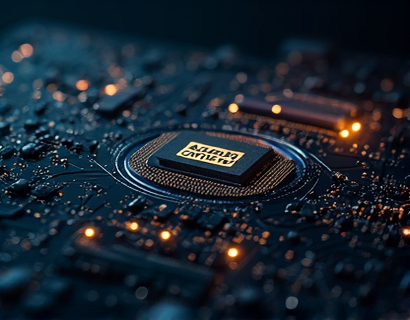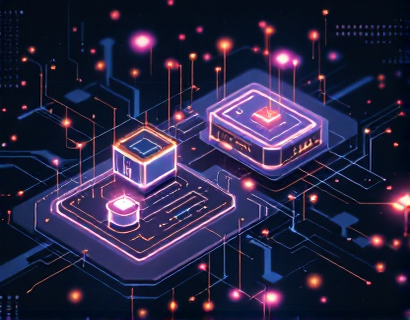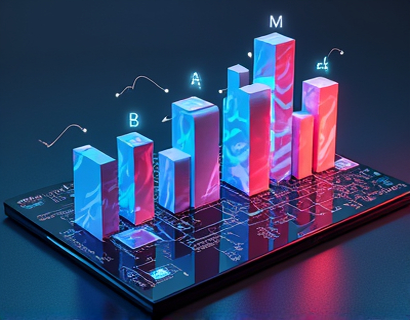Blockchain Oracle Management: Streamlining Data Integration and Smart Contract Execution for Developers and Businesses
In the rapidly evolving landscape of blockchain technology, the role of oracles emerges as a critical component for connecting decentralized applications (DApps) with external data sources. Oracles serve as bridges, providing real-time data and enabling smart contracts to interact with the off-chain world. However, managing these oracles efficiently remains a challenge for developers and businesses aiming to harness the full potential of blockchain. This article delves into groundbreaking software solutions that revolutionize oracle management, focusing on streamlining data integration and enhancing smart contract functionality. By optimizing these processes, the platform ensures secure and reliable interactions within DApps, unlocking the true power of blockchain technology.
Understanding Oracle Management
Oracle management involves the process of integrating external data sources with blockchain networks. This integration is essential for smart contracts, which need accurate and timely data to execute correctly. Traditional oracle solutions often suffer from issues such as latency, security vulnerabilities, and limited scalability. These challenges can undermine the trust and reliability of DApps, making efficient oracle management a priority for the blockchain community.
The core function of an oracle is to fetch data from external sources and relay it to the blockchain, and vice versa. This bidirectional data flow enables smart contracts to respond to real-world events and conditions. For instance, a betting smart contract might use temperature data from an external sensor to determine the outcome of a bet. The accuracy and timeliness of this data are crucial for the contract's proper functioning.
Challenges in Oracle Management
Developers and businesses face several challenges when managing oracles. One of the primary concerns is data latency. Delays in data transmission can lead to outdated information being used by smart contracts, resulting in incorrect executions and potential financial losses. Security is another significant issue. Oracles often become targets for malicious attacks, as they represent a point of vulnerability between the blockchain and the external world. Ensuring the integrity and authenticity of data is paramount to maintaining trust in the system.
Scalability is yet another challenge. As the number of DApps grows, the demand for reliable and efficient oracle services increases exponentially. Traditional oracle solutions struggle to scale, leading to bottlenecks and increased costs. Additionally, the lack of standardization in oracle protocols makes it difficult for developers to create interoperable DApps that can seamlessly integrate multiple data sources.
Innovative Software Solutions for Oracle Management
To address these challenges, innovative software solutions have emerged, focusing on optimizing data integration and enhancing smart contract functionality. These solutions leverage advanced technologies such as machine learning, decentralized networks, and cryptographic techniques to create more reliable and efficient oracle management systems.
One such solution is the implementation of decentralized oracle networks. These networks distribute the oracle function across multiple nodes, reducing the risk of single points of failure and enhancing security. By aggregating data from multiple sources, decentralized oracles can provide more accurate and up-to-date information. This approach also helps in mitigating the impact of any single node's failure or malicious activity.
Another key innovation is the use of machine learning algorithms to predict and preprocess data. These algorithms can analyze historical data patterns to forecast future values, reducing the latency associated with fetching real-time data. For example, a machine learning model can predict stock prices based on historical trends, allowing smart contracts to make informed decisions without waiting for the latest market data.
Streamlining Data Integration
Streamlining data integration is crucial for ensuring that smart contracts have access to the most relevant and timely data. Advanced software solutions employ a combination of techniques to achieve this goal. One such technique is the use of data synchronization protocols that ensure data consistency across different sources. These protocols can automatically reconcile discrepancies and update the data in real-time, providing smart contracts with a unified view of the external environment.
Furthermore, these solutions often include data validation mechanisms to ensure the integrity of the information being fed into smart contracts. Cryptographic hashes and digital signatures can be used to verify the authenticity of data, preventing tampering and ensuring that only valid data is processed. This is particularly important for financial and legal applications where data accuracy is critical.
Another aspect of streamlining data integration is the use of APIs that are designed specifically for blockchain interactions. These APIs simplify the process of fetching and submitting data to smart contracts, reducing the complexity and potential errors associated with manual integration. By abstracting the underlying blockchain mechanics, developers can focus on building robust and feature-rich DApps.
Enhancing Smart Contract Functionality
Enhancing smart contract functionality is another area where innovative oracle management solutions make a significant impact. By providing reliable and timely data, these solutions enable smart contracts to perform complex operations that were previously impractical or impossible. For instance, in supply chain management, smart contracts can use real-time inventory data to automate procurement processes, ensuring that stock levels are maintained without manual intervention.
In the realm of decentralized finance (DeFi), oracles play a vital role in executing trades and managing risk. Enhanced oracle management solutions can provide precise market data, enabling smart contracts to execute trades at optimal times and prices. This not only improves the efficiency of DeFi protocols but also enhances the user experience by reducing friction and increasing trust in the system.
Moreover, these solutions support the development of more sophisticated smart contracts that can handle conditional logic based on external data. For example, an insurance smart contract can be designed to trigger payouts based on real-time weather data, ensuring that claims are processed accurately and promptly. This level of functionality opens up new possibilities for creating decentralized applications that can interact with the real world in meaningful ways.
Security and Trust in Oracle Management
Security remains a top priority in oracle management. Innovative solutions incorporate advanced cryptographic techniques to protect data integrity and prevent unauthorized access. For instance, zero-knowledge proofs can be used to verify the authenticity of data without revealing sensitive information. This ensures that oracles can provide necessary data to smart contracts while maintaining user privacy and security.
Trust is also a critical factor in the adoption of oracle management solutions. Decentralized oracle networks enhance trust by distributing the oracle function across multiple nodes, making it difficult for any single entity to manipulate the data. Additionally, these networks often implement reputation systems and incentivize honest behavior, further ensuring the reliability of the data provided to smart contracts.
Scalability and Interoperability
Scalability and interoperability are essential for the widespread adoption of oracle management solutions. As the blockchain ecosystem grows, the need for scalable oracle services becomes increasingly important. Innovative solutions use sharding and other scaling techniques to handle large volumes of data without compromising performance. This ensures that DApps can scale seamlessly, supporting a growing number of users and transactions.
Interoperability is another key aspect, as it allows oracle management solutions to work across different blockchain platforms. By supporting multiple blockchain networks, these solutions enable developers to create DApps that can integrate data from various sources, regardless of the underlying blockchain. This interoperability fosters a more connected and cohesive blockchain ecosystem, driving innovation and collaboration.
Case Studies and Real-World Applications
To illustrate the practical benefits of advanced oracle management solutions, consider a few real-world applications. In the automotive industry, a smart contract can use real-time traffic data to optimize delivery routes, reducing fuel consumption and improving efficiency. Another example is in the realm of IoT, where smart contracts can manage device maintenance schedules based on sensor data, ensuring that equipment is serviced before failures occur.
A notable case study involves a decentralized prediction market platform that uses enhanced oracle management to provide accurate and timely data for bets. By integrating weather, sports, and financial data from multiple reliable sources, the platform ensures that bets are settled fairly and transparently, building trust among users.
Conclusion
Advanced oracle management solutions are transforming the way developers and businesses interact with blockchain technology. By addressing the challenges of data latency, security, scalability, and interoperability, these solutions enable more reliable and efficient smart contract execution. The integration of machine learning, decentralized networks, and cryptographic techniques paves the way for a new generation of DApps that can seamlessly connect with the external world. As the blockchain ecosystem continues to evolve, the role of robust oracle management will become increasingly vital, unlocking the full potential of decentralized applications and driving innovation across various industries.










































